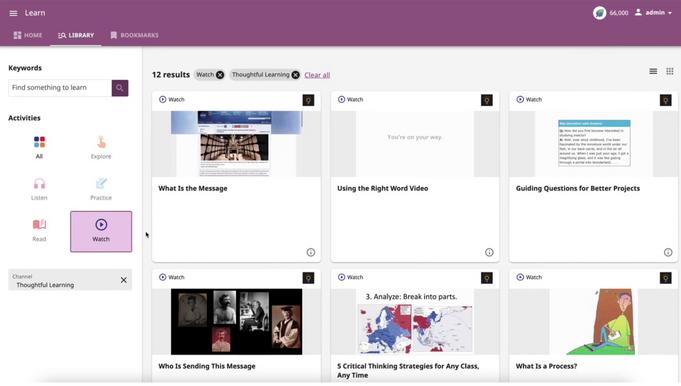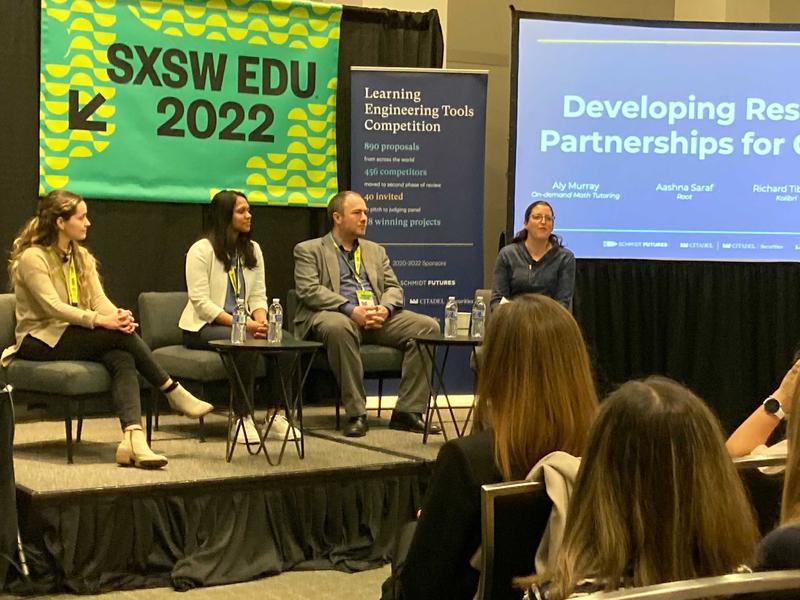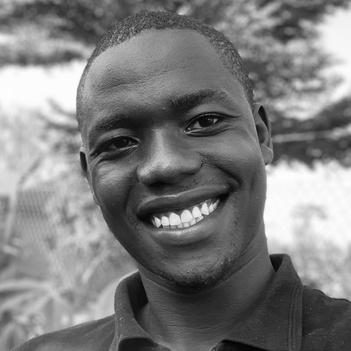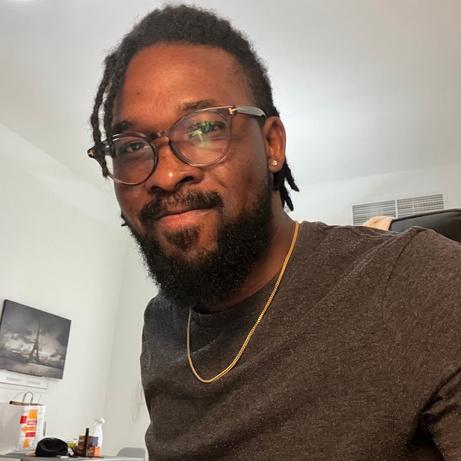





Peaceout,2022!
Check out some of the highlights from our year...
Our 2022 in Review PhotoCredits:NewArrivalsInstitute
This year, Learning Equality embarked on an introspective journey to collectively think through and develop our Theory of Change, a process that was informed by and included members of our community. As part of this self-examination, we also started to document our existing decolonizing and anti-racist practices to frame all areas of our work, both internally and externally. We’re in the process of creating an action-based roadmap to address gaps we currently have in our organization, along with a positionality statement in recognition of the multiple dimensions of privilege within our organization. We have lots to learn but we’re committed to growing and doing the work through this journey. More to come in the new year.


We revisited our Theory of Change and worked on decolonizing and anti-racist frameworks.
In order to better support hybrid learning and address learning loss of the pandemic, this year we released Kolibri v0.15: The “Take Home” release.
This version seamlessly supports hybrid learning at home, in school, or in any other lowresource, low-connectivity learning environments by enabling the existing educator support functionality in Kolibri to be leveraged remotely by educators. The “Take-Home” release also brings a revamped Learn page and additional features for improved discoverability of materials in support of self-directed learning.


If you haven’t yet, you can download it here.



To support implementers in the use of Kolibri v0.15, we released new Toolkit materials around distance learning with Kolibri–be sure to check out our implementation guide for learner data syncing!
Speaking of our Toolkit, we released a few additional resources in response to community needs:
An updated list of recommended hardware for use with Kolibri
A set-up guide for Raspberry Pi Kolibri distribution and access options
Provisioning Kolibri without the Internet

We fostered hybrid and self-directed learning.
Learning Equality remains steadfast in its commitment to leveraging the core aspects of open educational resources to enable quality learning experiences, while sharing with others the potential of these materials.

For our own products, we developed a new metadata taxonomy to improve content discoverability which is now available to edit in Kolibri Studio and to use on the Kolibri Learning Platform. We’re continuing to apply this to channels in the Kolibri Content Library which you’ll see over the coming months.

We also shared the value of OERs on two webinars: one hosted by UNHCR Connected Learning in Crisis Consortium alongside Martin Weller, Director of the OER Hub at The Open University, and another hosted at MYFest 2022, following an introduction from the Hewlett Foundation as part of the Open Education & Digital Literacies track, in a presentation focused on open learning platforms and tools.
Recognizing that the pandemic illustrated the significant needs to build or rebuild foundational literacy and numeracy (FLN) skills, particularly for learners with prolonged disruptions to learning, we scoped FLN materials (#FindFLN) to share our findings with the broader community and with the aim of growing the Kolibri Content Library.
And we did grow the Kolibri Content Library! This year we prioritized updating many of our sources, including those focused on FLN such as the Global Digital Library and African Storybooks, as well as expanding languages such as Ukrainian and Georgian for Khan Academy and multiple others for PhET. We also added two new coursesDigital Awareness and Digital Discovery - designed to nurture informed and considerate digital citizens, and developed by Digital Awareness UK with the support of Vodafone Foundation and UNHCR.
Last but not least, we’re thrilled to be co-hosting a Kaggle machine learning competition with the Learning Agency Lab to help automate the process of curriculum alignment. This is a significant milestone in our broader ongoing collaboration with UNHCR, and we’re thankful for their Connected Education and Innovation teams for their contributions to this process. We can’t wait to see the participants’ work, and action the winning solutions in 2023.
We championed OER and the importance of metadata for discoverability.
We love metadata.





We engaged our community in 3 Kolibri Virtual Learning Spaces, ranging in topics from accelerated education, implementing blended learning in low-resource environments (cofacilitated with our friends at Team4Tech), and differentiated learning practices. Our KVLS sessions had over 400 registrations with individuals from 48 countries!
In response to needs identified from the community around identifying resources for getting started with Kolibri, we launched the Kolibri Wizard. This self-guided questionnaire located on our website home page points users to the appropriate resources needed to take the next steps with using Kolibri or starting a Kolibri program, based on selected needs.

Are you part of our Kolibri Community Directory? We created the Directory this year as a means for members of the community to connect and learn more about the programs of fellow Kolibri members. If you haven’t completed a profile yet, join us!
We continue to respond to community needs, such as ensuring that Kolibri flies in different languages - currently at 30 languages with the support of refugee translators from Natakallam, volunteer translators, and through a collaboration with Clear Global.

We developed new tools for our community.





Checkitout!
We began to work with project-based learning in


This year we dedicated focus to exploring how Kolibri could be used to enable projectbased learning. While technology is by no means a requirement for PBL, in environments with limited resources and connectivity, there’s also often a lack of materials for PBL and resources for educators on how to adapt what exists to support this pedagogical approach.


We shared our solution for what tech-enabled, Internet-free, in-person project-based learning could look like, an approach which we term as ‘offline-squared,’ and are delighted to be a Solver team for this year’s MIT Solve Global Challenge. We’ve been applying this approach in a new collaboration supported by the LEGO Foundation with HAF-Uganda and Amal Alliance to explore this when infusing aspects of playful learning and building social emotional competencies alongside academic skills for out of school refugee learners for grade 3 in Palabek Refugee Settlement in Uganda in a project called Flying Colors. We’ll end the year with our first cohort who completed 10 weeks of the curriculum, with teachers who have received ongoing training and support, and we can’t wait to share what we’ve learned in 2023!
Next year, we’ll continue to explore what is possible for offline-squared, which we kicked off during a brief consultation and an overview of Flying Colors at this year’s mEducation Alliance Symposium, and with our contributions to a MIT Solve organized panel at the Civic Tech Innovation Forum 2022 describing our approach to curriculum design.

low-resource environments.
PhotoCredits:HAF-Uganda
This year, we continued to support different applications of Kolibri through dedicated collaborations.
Our colleagues at Shoulder to Shoulder continued to leverage Kolibri v0.15’s seamless synching mechanisms in support of hybrid learning, and utilized the reading materials in the Kolibri Content Library in support of their Reading Program with great success!



With the support of the Internet Society Foundation, we’re collaborating with Agami in Bangladesh to enable the creation of new Bangla content, and explore how Kolibri can be used both offline in schools and at home assisted by the Kolibri Android App, and online on the go.

Through these collaborations and others, we conducted 13 training sessions this year, including our first return to in-person training since the start of the pandemic with a Flying Colors workshop in Uganda. Beyond this, we engaged virtually with participants in Mozambique, Kenya, Uganda, and Greece.
In collaboration with Amal Alliance and the Harvard EASEL Lab, the Colors of Kindness Social Emotional Learning program kicked off the year in Greece. The pilot incorporated the use of Kolibri to deliver the Colors of Kindness program, supported by training from the Learning Equality team. After a successful pilot study that evaluated over 400 learners across 26 schools in Greece, the program has been in preparation to scale nationally in the Skills Lab using an online model.

We supported different uses of Kolibri.
PhotoCredits:Agami
Learning Equality continues to advocate for issue areas that intersect with our commitment to ensuring quality learning opportunities, particularly for those with limited resources.


This year we engaged in conversation at home in the U.S. on the Broadband for All initiative at the Pew Trusts Broadband Access Summit to share our experiences with offlinefirst edtech -- particularly needed while waiting for broadband to actually reach all learners.
Thanks to the Learning Agency we participated at a Demo Day at SXSW EDU to showcase Kolibri, and present our perspectives on learning sciences during a panelists with other winners of the Tools Competition.
Kolibri was highlighted by the IEEE Standard’s Association as an example of trustworthy and responsible technology for children.
We met with peers and new friends at the LEGO Idea Conference where our experiences and observations informed our ongoing development of the Kolibri Edtech Toolkit.
Engaging with a technical audience, we shared our experiences hosting cloud-based infrastructure for the communities that we serve at FutureStack 2022 by focusing on data and observability in a panel organized by Fast Forward.
Lastly, we participated in the conversations at the Transforming Education Summit during UNGA related to the track on digital learning and transformation, and shared our thoughts on the track’s focus on open content and why it’s important to include those who have been historically been excluded from being represented in learning engineering and other blended learning pedagogical practices to inform innovations in pedagogy and evidence-based instructional practice at scale.
We used our voice and platform to learn, inform, and grow.
We engaged in meaningful software development collaborations.
Kolibri would not exist in its current form without the support from our community of developers and contributors. We’re fortunate to work closely this year with a few who had an immense impact.

Once again, Learning Equality was a mentoring organization for Google Summer of Code 2022 where we hosted incredible contributors who worked on projects to improve the accessibility of the PDF renderer and optimize real-time communication with websockets, both aimed to improve the user experience on the Kolibri Learning Platform and Kolibri Studio. Google Open Source also showcased our work as a mentor!
We also worked closely again this year with the team at Endless OS Foundation. We can’t wait to show you their significant contributions to support an improved user experience with the Kolibri Android App when it’s publicly available in an open testing track in the Google Play Store next year, as well as their work to allow pre-curated libraries to be seamlessly loaded onto devices.






UsandtheEndlessOSFoundationTeam. ReportinglivefromSXSWEDU2022!
We grew our team!




One of the highlights of our year was the addition of 9 new core contributors to our team. Bringing new energy, life experiences and skills, our new teammates came in to fulfill much needed capacity gaps across design, infrastructure, product, curriculum, and M&E areas of our work. They have quickly become part of the LE family and we couldn’t be more grateful to have them!
In that same vein, we also had the opportunity to collaborate with part-time contributors to work on projects related to content integration, and software development, including two of our Google Summer of Code contributors. The best!















 Tomiwa
Hiba
Samson
Liana
Carlos
Francis
Allan
An Amelia
Tomiwa
Hiba
Samson
Liana
Carlos
Francis
Allan
An Amelia
Looking ahead at the new year, we’re beyond excited for what’s to come. From celebrating 10 years of Learning Equality, to exciting changes to our branding and website, the public release of the Kolibri Android App, some game-changing new features in Kolibri, and the continued work to address anti-racism and decolonization practices, 2023 is already shaping up to be one of our best yet.

As always, we couldn’t have achieved any of this without the support of our community of collaborators, partners, funders and individual donors. We extend our gratitude to you all, as well as our warmest wishes for the holiday season and the year ahead.

Until next year,

The Learning Equality team
Ringing in 2023...







































